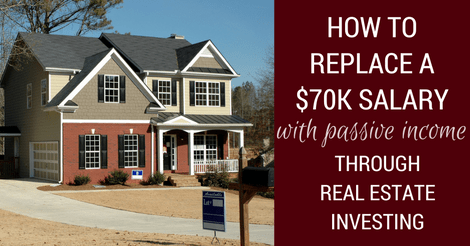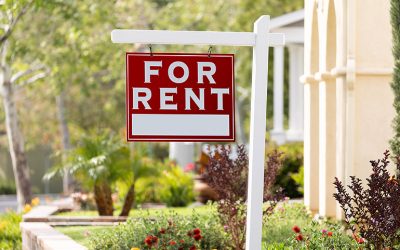
Flipping houses can be considered an excellent way to make a quick profit if done correctly. However, it may not be the best strategy if your goal is to build great wealth without working extensively, day in and day out. In contrast, if being involved in real estate while sitting back and enjoying passive income is your goal, then we suggest investing in rental real estate, also known as rental properties.
In this article, we will discuss the differences between making money through house flipping and creating passive income through rental properties, to give you a better understanding between the two strategies. This will allow you to see the truth about flipping houses and how time-intensive it really is compared to investing in rental properties.
What is Flipping Houses?
House flipping is a strategy where revenue-generating properties are purchased with the purpose of reselling them for a profit in a short period of time. This typically involves buying property that requires rehabbing. The buyer acquires a piece of property, what they may call a “fixer-upper”. They then invest funds into repairing or upgrading the property to increase its value. Once completed, the property is sold to an interested party for a profit. If you already invest in flipping houses, then you know that the process of flipping a house is generally quick, from 90 days to possibly a year if there are issues.
House flipping strategies include keeping close tabs on foreclosures, as well as old homes in an area of interest. Once these often distressed properties are obtained, experienced flippers typically perform the renovations themselves as opposed to hiring contractors. This saves a substantial amount of money and therefore increases profits. After all, if making money flipping houses is your goal, then every penny counts.
Pros and Cons of House Flipping
If you are researching house flipping to determine if it’s the best way for you to generate money, and the best use of your time, then it would be wise to become familiar with its pros and cons. In addition to this, many new real estate investors ask if flipping houses is worth it. With this question in mind, we are laying out some essential details for those interested in flipping houses.
Advantages of Flipping Houses
If done correctly, house flipping can generate quick profits, as well as help an investor gain much industry experience. Let’s take a closer look at these advantages:
1. Potential to make a quick profit
One of the most significant benefits of house flipping is the ability to make a quick profit in a short amount of time. If done right, a large amount of money can be made in only a few months. If an individual is flipping houses full time, this can certainly add up for the year. How much per year? There is no standard answer. It all varies depending on the cost of the houses that are flipped, the extent of repairs that need to be completed, selling and closing costs, and so on. Many investors have reported that their average profit per flip is typically around $20,000 to $30,000. Of course, the amount can vary depending on experience and circumstances.
2. Gain Valuable Industry Knowledge
Because house flipping is generally a hands-on real estate strategy, you gain extensive knowledge through experience. After your first few properties are flipped, you become more familiar with which properties are more suitable for flipping. You can also gain an understanding of the costs of materials used in repairs and renovations. This will increase your profits because you will eventually be spot on with budgeting. In addition to this, just like a property inspector, you will be able to better recognize property issues that may lead to a loss of profits such as problems with mold and asbestos.
Disadvantages of Flipping Houses
To fully realize the truth about flipping houses, interested parties would need to be informed on more than just the benefits of flipping a home. It’s wise to have a well-rounded view of house flipping that covers its disadvantages as well.
1. House Flipping is a Full Time Job
If an individual decides to take part in flipping houses with a goal of making a fair amount of money, they would need to be prepared to spend a considerable amount of time flipping, making it their full time job. There is much involved in the process of flipping houses. Many hours are spent searching for houses that are flippable. Time is spent purchasing the property. A well-thought out plan as to what will be repaired or upgraded based on a budget will need to be created. This can take a good amount of time. Architectural renderings may need to be drawn up, timelines will need to be drafted, along with applying for building permits. Then, months of construction take place. This, in itself, can turn house flipping into a labor-intensive full time job.
For those who pay others to do repairs and renovations, they end up spending many hours directing, supervising, and organizing. However, many house flippers do the work themselves to ensure maximum profits. After repairs are completed, property inspections are scheduled. If the property does not pass, then more time will need to be invested in meeting those requirements. Next, the flipper works on advertising and selling the property. This can involve many trips to the property to meet with prospective buyers. Once a buyer is found, there can be a long process of closing a deal. It’s a lot of work, and this is just one property!
2. Flipping Properties Can Produce Inconsistent Income
You can reel in a hefty lump sum when you flip a house. However, if you are relying on flipping houses for your yearly income, you have to realize that it can produce inconsistent income. This is because it’s a risky real estate strategy. You have to be sure you are ready to make a commitment to invest a considerable amount of time throughout the year to flipping houses. Even then, you are not guaranteed the money you may be hoping for. This is risky when you have car payments, bills, or a home mortgage, like most people do.
3. There is a Risk of Losing Money When You Flip Houses
Although the allure of a quick profit can attract people to start flipping houses, it does come with much risk. This risk can produce a potential to lose a lot of money. How much money? That depends on the amount that was initially invested, and many other factors. It’s crucial to be aware of these factors that can cause someone to be in the red.
An analysis RealtyTrac completed for MONEY Magazine reported that 12 percent of flips sold at a break-even amount or at a loss before all expenses. In 28 percent of property flips, the gross profit was less than 20 percent of the property purchase price. Twenty percent is normally the minimum that someone would need to at least cover their rehab costs, carrying costs, as well as other expenses. These are statistics that were recorded, but there could be hundreds of thousands more flips that may have been at a greater loss due to the following reasons:
- Over budget on materials for repairs or upgrades.
- Didn’t estimate the value of the property correctly and selling price does not cover expenses.
- Unexpected higher expenses on items such as carrying (holding the property until it’s sold), selling, and financing costs.
- Trouble finding a buyer and monthly mortgage costs are paid by the flipper.
- A sudden downward shift in the market before the property is ready to be sold.
There are many variables to complete a house flip that can contribute to losing the money that’s invested. Even if you’re an expert and know how to invest in flipping houses better than most, it’s still a risky real estate strategy. Additionally, it’s wise to compare house flipping to other real estate ventures, and to not put all your eggs in one basket.
House Flipping VS Rental Property Passive Income
If you’re not familiar with the world of rental properties and passive income, you might be missing out on an opportunity to create the lifestyle you have always dreamed about, as well as become financially independent. For those who are interested in having a free schedule while you live off of your tenant’s rent checks, then investing in rental properties may be your best bet. If you love to commit your time to working a real estate deal, as well as getting fully immersed in repairs and upgrades, even if it’s a full time job, and you have backup funds in case you are hit by a bad deal, then house flipping may be your forte. Let’s take a closer look at passive income and rental properties:
What is Passive Income?
This type of income is earned when little to no effort is put forth to continue to receive the income. One way to sum up passive income is that you can actually earn money while your sleeping. Of course, there is an initial amount of work that needs to be completed to set up the passive income scenario. Examples of passive income are a self-running business selling merchandise on Amazon, owning rental real estate, and the like.
What is a Rental Property?
A rental property is typically a residential dwelling such as a single or multi-family unit, that is rented out to tenants. The tenants pay the property owner monthly rent that creates a steady and lucrative cash flow. The building owner normally hires a property management company. This company maintains the property, collects the rent checks, and takes care of the tenant’s needs. There are even tools where you can check how profitable a rental property would be. DealCheck’s property analyzing software is one such tool that you may want to look into if you go down this path.
To find out more about the process of investing in rental properties, take a look at our Beginners Guide to Purchasing a Rental Property. Also, if you want to get ahead of the game, check out this post on real estate tools and resources.
Rental Real Estate Creates True Passive Income While Flipping Does Not
You now know how much work is involved in flipping houses. You can also see that the money earned through flipping is not passive income. Rental real estate, on the other hand, creates true passive income that’s long-term and steady. Additionally, everyone needs a place to live, so the demand is high. Most leases are yearly and ongoing. If a tenant moves out, another will surely move in, which means you will receive rent checks throughout the year, year after year. No matter what you are doing, sitting on a beach, spending time with your family, or using your free time to build your real estate portfolio, those rental checks will be coming in like clockwork. This will allow you to be financially independent, grow your retirement funds, and enjoy life.
You can maximize your passive income by incorporating and purchasing your property through an LLC. This is the case because you receive greater tax write-offs when you’re incorporated. We recommend contacting an experienced professional, such as Corporate Direct, to set your LLC up properly.
Increase Your Wealth by Investing in Passive Income Generating Rental Properties
If after learning the truth about flipping houses, you have decided that creating passive income through rental properties is a wise choice, the team at Morris Invest can make it a reality for you. Here at Morris Invest, we feel that the number one way to build great wealth is through rental properties. We also understand that if you are new to the game, it can be a bit confusing. Our team of real estate experts have assisted hundreds of individuals purchase their first piece of rental property. We make investing in rental real estate very simple. We find properties in an outstanding rental market, renovate, fill the property with tenants for you, and manage the rental. This is truly passive income at its best. Schedule a call with Morris Invest so that we can discuss your goals and how we can help you achieve them.
Ready To Build Passive Income Through Rental Real Estate?
Ready to talk about your goals? We're here to show you the tools and teach you the process to begin earning legacy wealth for you and your family.








